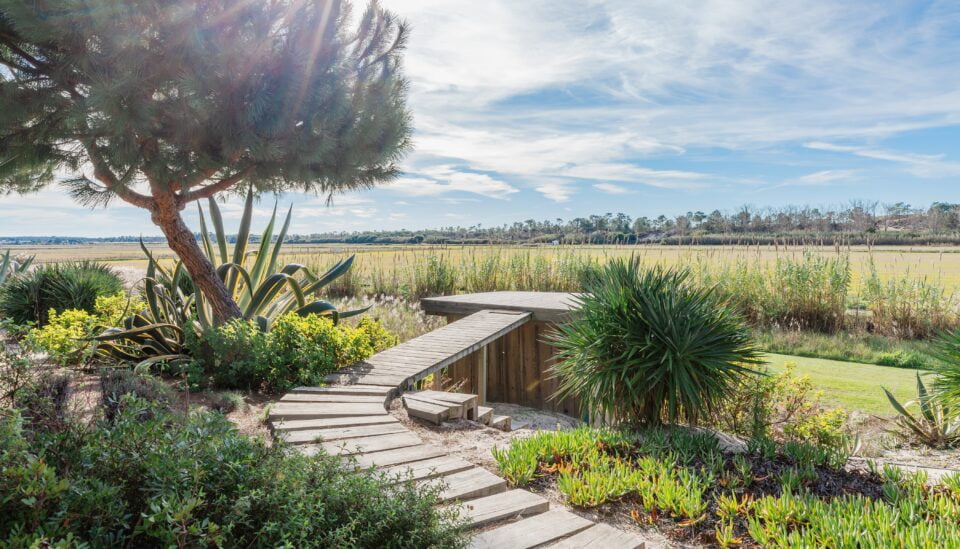Buying a home is one of the most significant milestones in many people's lives. It's not just about finding a place to live; it's about making a substantial financial investment and creating a space where you can build memories and a future. The importance of this decision cannot be overstated, as it impacts your financial stability, lifestyle, and long-term happiness.
The process of purchasing a home is complex and multifaceted. From determining the right location to understanding the financial implications, there are numerous factors to consider. Each decision you make along the way can have a lasting impact on your overall satisfaction with your new home. It's a journey that requires careful planning, thorough research, and a clear understanding of your personal and financial goals.
The purpose of this article is to simplify this daunting process by highlighting the four key factors you need to consider when buying a home. By focusing on these essential elements, you'll be better equipped to navigate the real estate market and find the perfect property that meets your needs and aspirations. Whether you're a first-time homebuyer or looking to upgrade to your dream home, this guide will provide you with the insights and tips necessary to make an informed and confident decision.
1. Budget and Financing
One of the most critical steps in the home-buying process is setting a realistic budget. Knowing how much you can afford helps narrow down your options. Start by reviewing your income, savings, and monthly expenses. Remember to account for your lifestyle and future financial goals to ensure that your home purchase aligns with your broader financial picture.
Financing your home is another crucial aspect that requires careful consideration. There are several financing options available, with mortgages being the most common. Mortgages come in various forms, including fixed-rate and adjustable-rate mortgages, each with its own set of advantages and disadvantages. Understanding the different options and how they impact your long-term financial obligations is essential for making an informed decision.
Getting pre-approved for a mortgage is a vital step in the home-buying process. A pre-approval letter from a lender shows sellers that you are a serious and qualified buyer. It also gives you a clear idea of how much you can borrow, helping you set a more accurate budget. During the pre-approval process, the lender will evaluate your credit score, income, and financial history to determine your eligibility. Having this information upfront can streamline your home search and give you an edge in competitive markets.
When planning your budget, it's important to consider additional costs beyond the purchase price of the home. These include closing costs, which can range from 2% to 5% of the loan amount and cover fees for services like home inspections, appraisals, and title insurance. Property taxes are another ongoing expense and should be factored into your budget. Additionally, don't forget about maintenance and repair costs, which are inevitable over the lifespan of your home. Setting aside a reserve fund for unexpected expenses will help you manage your finances more effectively and ensure that you are fully prepared for homeownership. By carefully considering these aspects of budget and financing, you'll be better positioned to make a sound financial decision and enjoy your new home without undue financial stress.
2. Location and Accessibility
The location of your home is one of the most important factors to consider in the home-buying process. Real estate experts often emphasize that location is key because it significantly impacts your lifestyle, convenience, and the long-term value of your investment. A prime location can enhance your daily life by providing easy access to essential services and amenities while also contributing to the future appreciation of your property.
When evaluating potential homes, consider their proximity to your workplace, schools, and necessary amenities such as grocery stores, healthcare facilities, and recreational areas. A shorter commute can save you time and reduce stress, improving your overall quality of life. Additionally, if you have children or plan to in the future, living near reputable schools is a critical factor that can influence your decision. Access to quality education not only benefits your family but also adds to the desirability of your home should you decide to sell it later.
Neighborhood safety is another important aspect to consider. Visit the neighborhoods at different times of the day to get a sense of the community's safety and atmosphere. A secure and welcoming environment is essential for your peace of mind and the well-being of your family.
Future development plans in the area can also impact your decision. Look into any planned infrastructure projects, new businesses, or residential developments that could affect the neighborhood's character and your property value. While some developments can enhance the area's appeal, others might bring increased traffic or noise, which could detract from your quality of life.
Finally, consider the resale value of the properties you're looking at. Even if you plan to stay in your new home for many years, it's wise to think about its potential resale value. Homes in desirable locations tend to appreciate more steadily and attract more buyers when it comes time to sell. Factors such as good schools and convenient access to amenities all contribute to higher resale values.
By thoroughly evaluating the location and accessibility of potential homes, you can ensure that you choose a property that not only meets your current needs but also serves as a sound investment for the future.
3. Property Type and Condition
Choosing the right property type and assessing its condition are critical steps in finding your perfect home. The features and overall state of a property can greatly influence your living experience and future expenses. Therefore, it's important to identify your must-have features, evaluate the age and condition of the property, understand the importance of a home inspection, and consider the potential for renovations and upgrades.
Begin by identifying your must-have features versus nice-to-have features. Make a list of the essential attributes your new home must include to meet your daily needs and lifestyle preferences. This list might include the number of bedrooms and bathrooms, a modern kitchen, a spacious backyard, or a home office. Nice-to-have features, on the other hand, are those that would be a bonus but aren't deal-breakers, such as a swimming pool, a fireplace, or a walk-in closet. Having a clear idea of your priorities will help you focus your search and make informed decisions.
Next, consider the age and condition of the property. Older homes can offer charm and character, but they might also come with hidden issues such as outdated electrical systems, plumbing problems, or structural concerns. On the other hand, newer homes often require less immediate maintenance and come with modern amenities. However, they can sometimes lack the unique features and mature landscaping found in older properties. Assess the pros and cons of the property's age and be prepared for the maintenance or upgrades that might be necessary.
Consider the potential for renovations and upgrades when evaluating a property. Some homes may require immediate improvements to meet your needs or preferences, while others might offer opportunities for future enhancements. Assess whether the property has the space, layout, and structural integrity to accommodate your renovation plans. Additionally, think about the potential return on investment for any upgrades you make. Certain renovations, like kitchen remodels or adding energy-efficient windows, can increase the home's value and appeal.
By carefully considering the type and condition of the property, you can ensure that you choose a home that meets your needs, fits your budget, and has the potential to grow with you over time. This thorough evaluation will help you avoid unexpected expenses and ensure a satisfying home-buying experience.
4. Future Plans and Lifestyle
Considering how a property aligns with your long-term goals and lifestyle preferences is crucial for ensuring that your investment remains satisfying and practical over time. One critical aspect is whether the home can accommodate your future needs, such as a growing family or the desire to downsize. If you plan to expand your family, you’ll need a home with enough space, including additional bedrooms and bathrooms. Proximity to good schools, parks, and family-friendly amenities will also be important. Alternatively, if you're looking to downsize, you might prioritize a smaller, more manageable property that still offers comfort and convenience.
Lifestyle preferences, such as choosing between urban or suburban living, play a significant role as well. Urban areas typically offer vibrant cultural scenes, diverse dining options, and easy access to public transportation. However, they may also come with higher costs and smaller living spaces. Suburban areas, in contrast, often provide larger homes, more green space, and a quieter environment, which can be ideal for families or those seeking a more relaxed lifestyle. Proximity to recreational activities, such as parks, hiking trails, or community centers, should also align with your interests and hobbies.
Future resale potential and marketability are crucial factors to consider. Even if you plan to live in your home for many years, circumstances can change, and having a property that is attractive to future buyers can be advantageous. Look for features that are generally desirable, such as a good location, strong school districts, and modern amenities. Additionally, consider the long-term trends in the area. Is it a growing neighborhood with potential for appreciation, or is it in decline?
By carefully considering how a home fits into your future plans and lifestyle, you can make a more informed decision that supports both your immediate needs and long-term aspirations. This foresight ensures that your home remains a valuable and enjoyable part of your life for years to come.
Smart Home Buying: Find Your Dream Home Today
Navigating the complexities of buying a home requires careful consideration of several critical factors. From understanding your financial landscape and choosing the right location to evaluating the type of property and its condition, each step is crucial in your decision. Your ideal home should meet both your immediate needs and future aspirations. It's not just a place to live, but a space to create memories and a financial investment that should ideally be appreciated over time. As you progress in your search for the perfect property, keep these key considerations in mind to make a wise and satisfying choice.
Are you ready to take the next step toward finding your dream home? Contact Bonte Filipidis to start your home-buying process. We're here to help you every step of the way. If you have any questions or need assistance, don't hesitate to contact us. Let's start this new quest together—your new home awaits!


